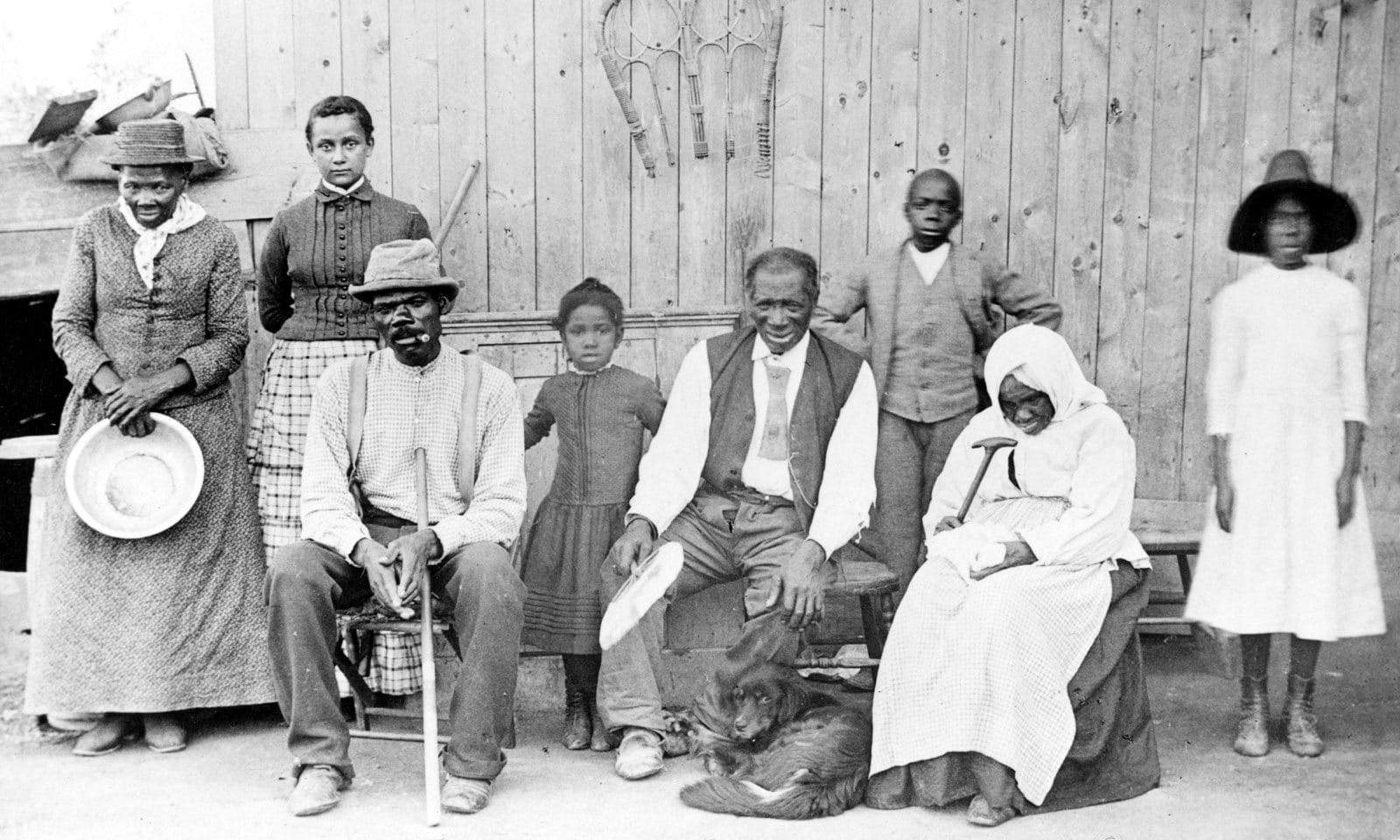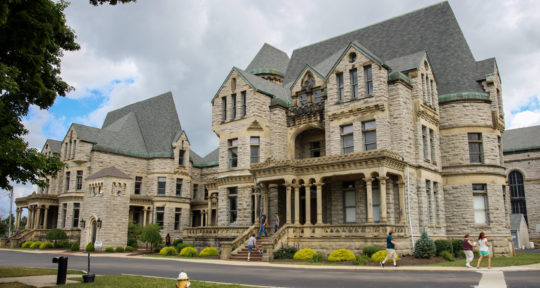I wake in the deep, black night to the sound of rain on thick glass. Sitting up in the single bed, I rub my eyes, but they don’t adjust—there is no rectangle of blue iPhone light to orient myself, and no red or green dots blinking at me from various electronics. There’s just darkness. I paw at the nightstand and feel my phone tucked into its knitted pocket, right where I vowed to leave it when I checked into Le Monastère des Augustines in Quebec City.
I’m sleeping in an authentic nun’s chamber in a monastery built in the 1600s. It’s since been turned into a premier wellness hotel, so it’s no wonder I’m disoriented. I consider sneaking a glimpse at my phone to check the time. But then I hear the creaking of wooden beams above me, smell the soft lavender and rosemary of the bedsheets, and notice the faint twinkle of stars outside the window panes’ rippled glass.
When I checked in here yesterday after a harrowing two-day drive across slick roads, I felt out of place. I lugged my bags—overpacked, as usual—into the reception hall and narrowly missed bowling over a French-speaking couple in thick white robes. It took me a moment to release the remnants of mild road rage as I adjusted to my new surroundings: a soaring glass entryway, enclosing a historic church.
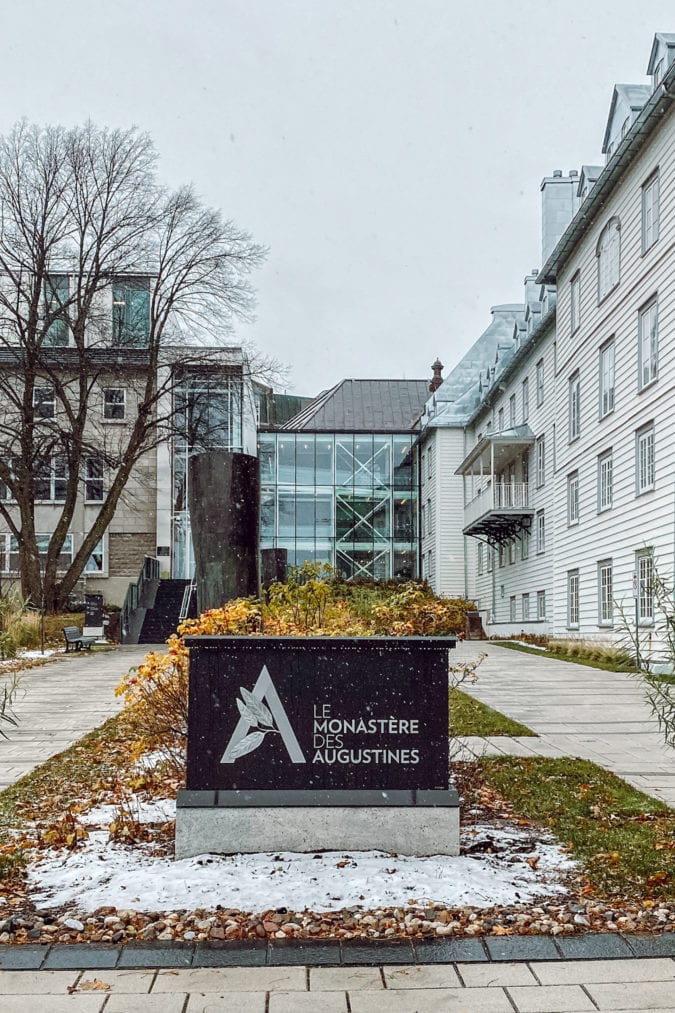
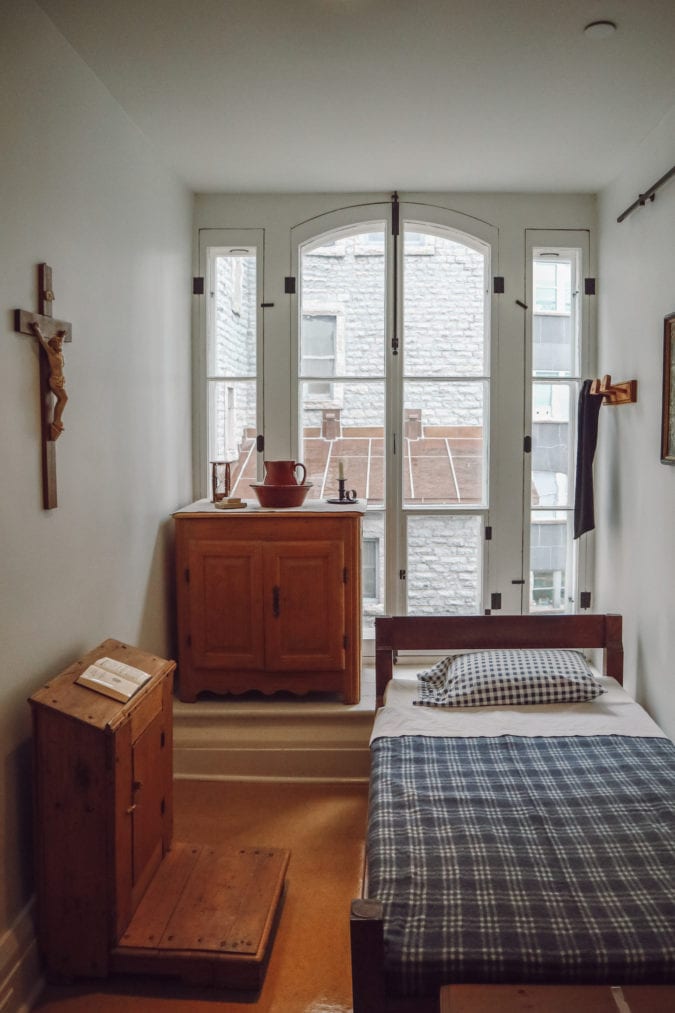
I stared at the reception desk and casually backed up against the church’s stony exterior. Walking into Le Monastère des Augustines was unlike walking into any other building I’ve been in before. Everything was suddenly quieter and distilled, including me. I’m not the first person to have arrived on the steps of Le Monastère des Augustines with similar thoughts. For nearly 400 years—long before this site was a destination wellness hotel—the Augustinian sisters have welcomed the weary over their threshold.
I decide to leave my phone in its knitted pouch and close my eyes, the rain lulling me back to sleep.
From hospital to hotel
Centuries ago, three Augustinian sisters sailed from France to begin a new life. “Our sisters arrived here in 1639,” says Katie Lepage, business development manager of Le Monastère. We meet after a quiet breakfast on the first morning of my stay. Each morning guests are offered breakfast in silence, in keeping with the sisters’ traditions. I felt restless at first, before settling in to the sensations of taste, smell, and faint sounds.
Maybe this is why, when chatting with Lepage about the sisters, I notice her use of the possessive pronoun “our,” and the note of pride in her voice as she describes their good works. “Le Monastère des Augustines bears witness to the lifestyle and social mission of the Augustinian Sisters,” Lepage says. “Inspired by their fervor and compassion and their devotion to healing the body and soul, Le Monastère is carrying the welcome, hospitality, memories, and resources of this foundational site into the future.”
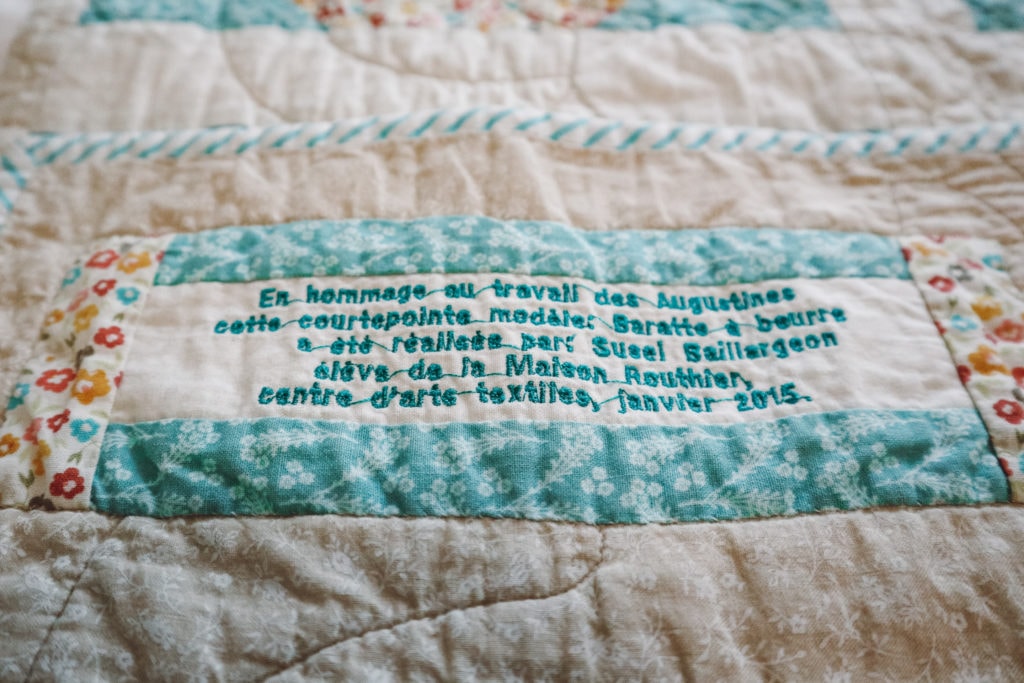
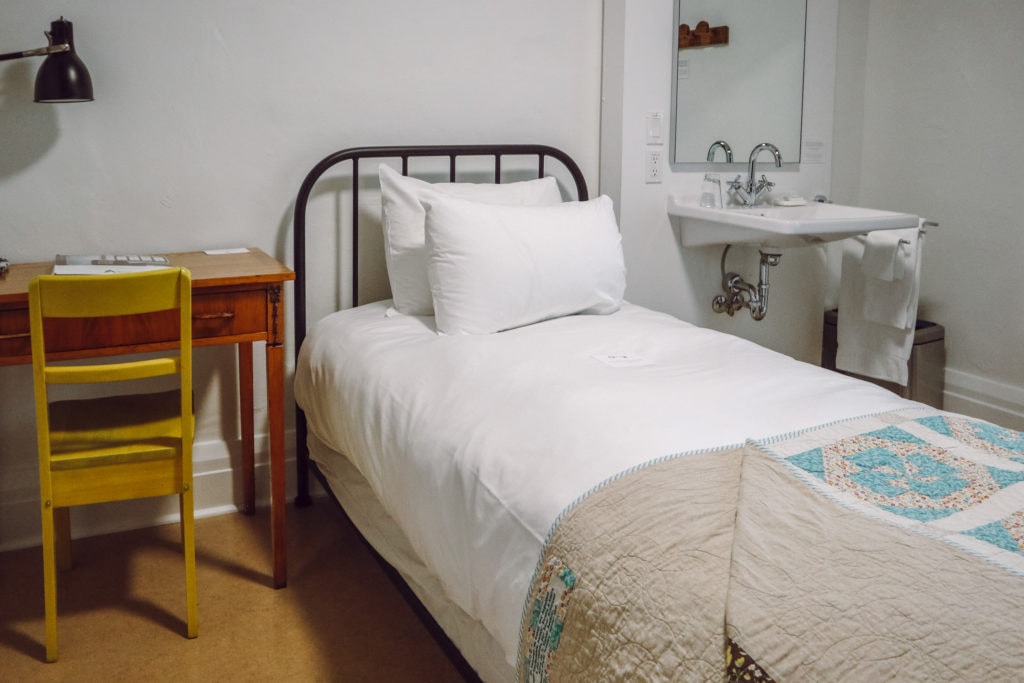
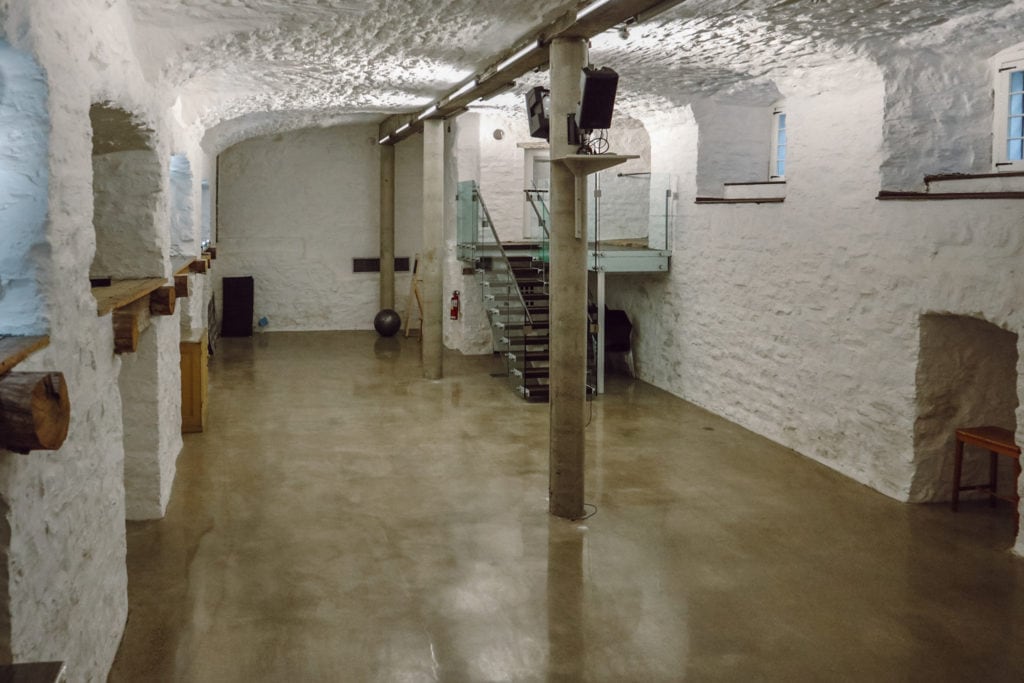
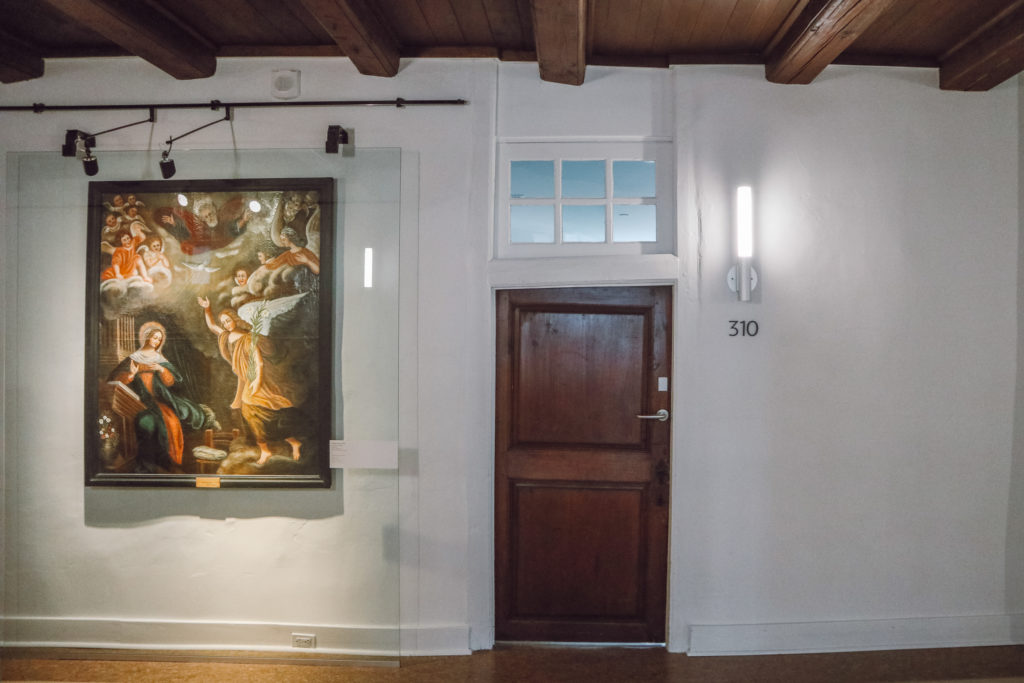
The foundational site itself is not just the sisters’ cloisters; it’s also a hospital. “[The sisters] founded the first hospital in North America north of Mexico, which is still standing and in operation today,” Lepage says. The hospital, Hôtel-Dieu, is connected to the monastery and visible through the window we sit by. Prior to the 1800s, it was staffed by the Augustinian sisters themselves. The sisters assisted in all care, learned about poultices from the First Nations people, and grew their own medicinal herbs on site. Their apothecary became legendary, drawing patients from as far as Halifax—a long way in the 1800s.
During the first half of the 19th century, the sisters also welcomed approximately 1,400 orphaned or abandoned children into their space. They cared for the children as their own alongside another unlikely group: British soldiers. For 25 years after the American Revolutionary War ended, soldiers occupied the vaults of the monastery. Through it all, the sisters diligently continued their work to heal others.
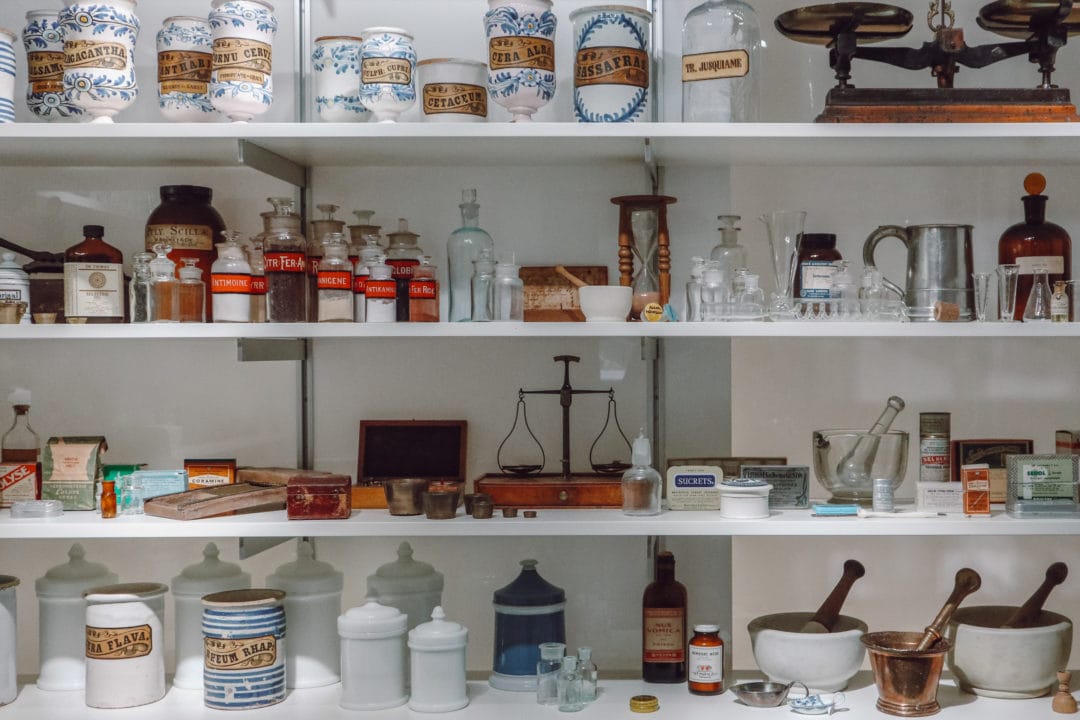
Carrying on the legacy
In modern times, the sisters’ numbers have dwindled. “They are aging,” Lepage says. “There are only eight sisters left and living with us.” During our conversation, a few of them pass by in their white habits, nodding hello or stopping to chat.
“They did not want their legacy, buildings, heritage, and mission to disappear,” Lepage says. The sisters needed to find a way to not only preserve their history, but continue their good works. In the 1990s, the Augustinian sisters founded a trust, and the idea of a wellness hotel and museum was born. Because all of Old Quebec City is a UNESCO World Heritage site, it took years of tweaking architectural design—and $42 million—in order for the sisters’ dream to come to fruition. Le Monastère des Augustines officially opened in 2015.
The hotel is an architectural masterpiece that simultaneously preserves and transforms the existing cloisters, church, and hospital. The individual buildings are now connected with a glass exterior, and guests have the option to sleep in two styles of rooms. I chose the first, one of several authentic “monastic” rooms, the exact same cells sisters slept in. Each room is simple yet cozy. The beds are covered in quilts hand-stitched by Quebec residents, and each nightstand is kitted out with “sleepers,” the knit pockets where guests can stash their phones throughout their stay. “I knitted six myself,” Lepage says “[My colleague] who started this project knitted about 80.” The other option is a fourth-floor contemporary room, which is more modern and spacious, yet retains a feeling of modesty.

Le Monastère des Augustines is not just historical and luxurious, but also charitable. “Caregivers, companions, and health and social services workers can take advantage of a stay at Le Monastère that allows them to relax, participate in activities, and enjoy resources designed for them and supported by La Fiducie du Patrimoine Culturel des Augustines,” Lepage says. As a nonprofit, excess funds are used to offer these respite stays. The largest suite in the hotel is reserved for caregivers. When I hear this it makes sense—I’m familiar enough with the sisters at this point to know that of course they would reserve the most luxurious suite for guests who spend their time caring for others.
Body and soul
“We carry on by, among other things, taking care of the body and soul of our guests,” Lepage says. “In an effort to continue the hospital mission of the Augustinian Sisters, Le Monastère helps our guests take a holistic approach to their own health.” This is a place of both global and secular health, she stresses. Although founded by Catholic sisters, Le Monastère des Augustines is a place for all people to find healing through silent breakfasts, meditation walks, spa treatments, and more.
I spend the rest of my stay working on my own body and soul. I take a tai chi class held in the vaults that once housed British soldiers, followed by an hour-long massage. I savor the sisters’ original tea blends from the 1800s and a six-course dinner of locally-sourced, whole foods. But perhaps the most healing experience of all is a simple vespers service. At 5 p.m., I wander into the church. All eight sisters in white habits are congregated in a church pew. Some have walkers and canes, others have broad young faces. Together, they sing in French, and while I don’t know the exact words, I feel their meaning.
A few days later, I pull my phone from its case, repack my overstuffed bags, and close the wooden door to my room one last time. There is adventure to be found within the ancient walls of Le Monastère des Augustines, from the historical museum to the many wellness offerings, to the sisters’ stories. But the greatest adventure might just be the one that guests are taught to take within themselves.
If you go
Le Monastère des Augustines is located in Quebec City. You can book an overnight stay in an authentic or contemporary room. Alternatively, take a tour of the museum or enjoy a meal at Le Restaurant.


